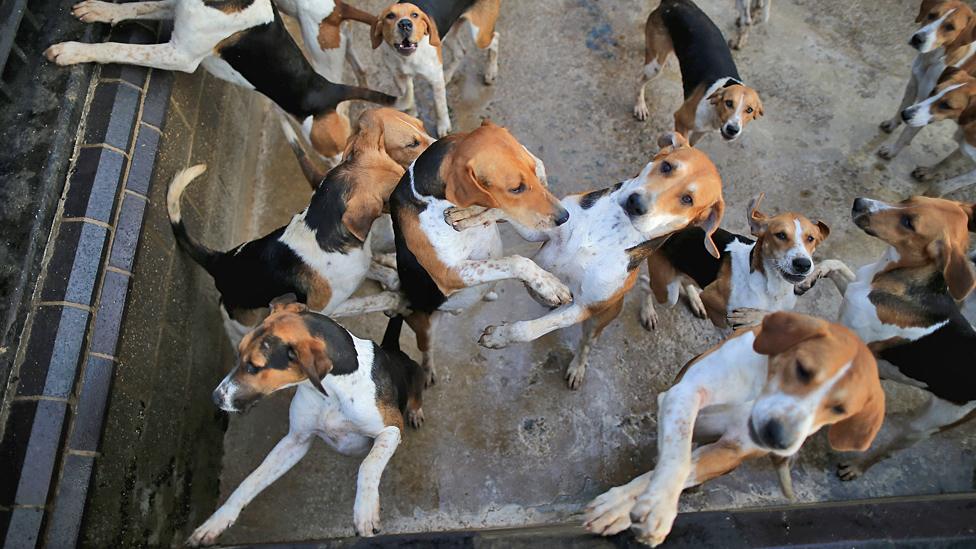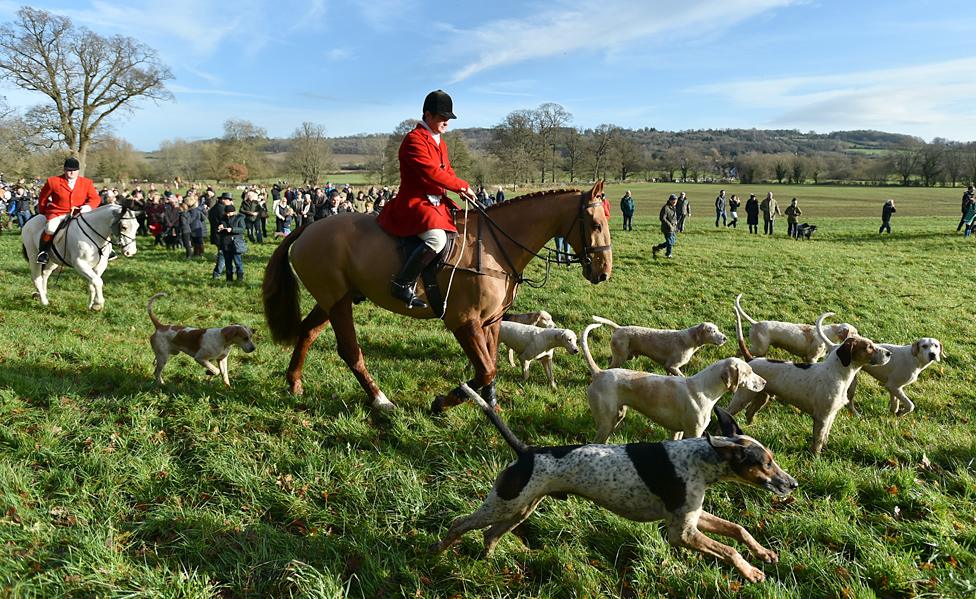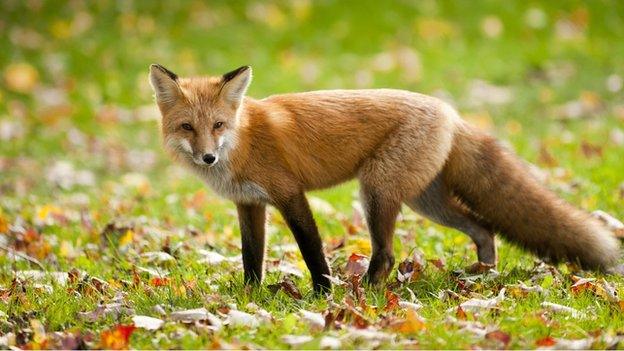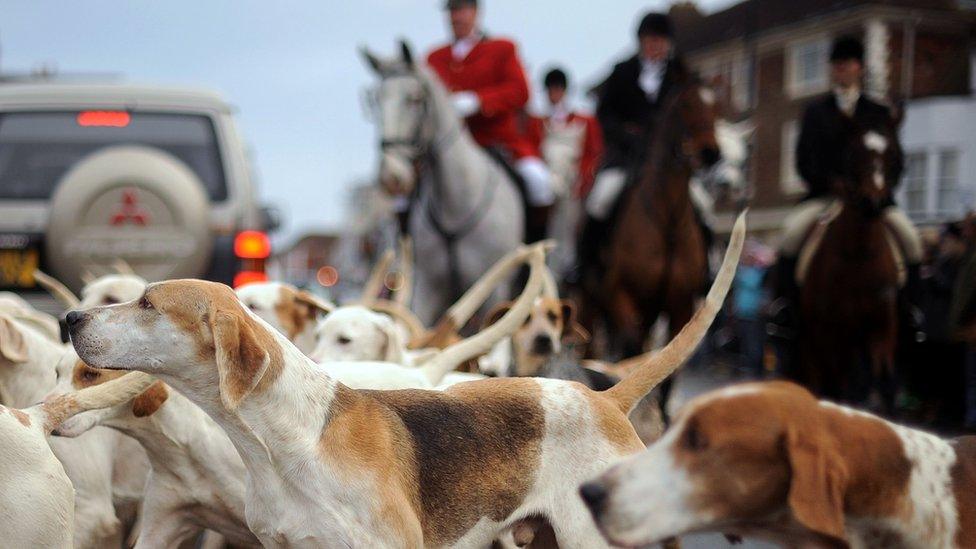Boxing Day hunts: Labour pledges tougher laws
- Published

Labour is promising to toughen up the ban on hunting with dogs in England and Wales, saying it will consult on jailing those caught breaking the law.
Ahead of the Boxing Day hunts, shadow environment secretary Sue Hayman said jail terms would put penalties on a par with those for other wildlife crimes.
An unlimited fine is currently the most severe punishment available.
The pro-hunting Countryside Alliance says Labour's "obsessive pursuit of hunting... looks increasingly bizarre".
Some 250 packs are expected to meet for traditional Boxing Day hunts, with up to 250,000 people taking part or watching.
Since fox hunting was outlawed in 2004, pursuit of live animals has been replaced by trail hunting, which sees hounds and riders follow a pre-laid scent such as fox urine.
Activists have claimed these events can effectively allow banned practices to continue, if trails are laid near where foxes are likely to be.
Ms Hayman said: "Labour's 2004 Hunting Act was a key milestone in banning this cruel blood sport, but since then new practices have developed to exploit loopholes in the legislation."
In order for a prosecution to succeed, a person must be shown to be intentionally hunting an animal.
Labour is considering a "recklessness" clause to stop trail hunts being used to disguise illegal hunting.

Hunting continues legally, with hounds encouraged to follow a scent
Separately, in Scotland, which outlawed hunting animals in 2002, Green MSP Alison Johnstone announced plans for a consultation on strengthening the nation's ban on fox hunting.
"The so-called ban has failed and urgent action is needed to close the loopholes that allow foxes to be chased and even killed by hunts," she said.
Up until 2017, more than 460 individuals had been found guilty of breaking the law in England and Wales.
However, earlier this month, Cheshire's police commissioner urged the government to change the law.
David Keane said a review had found "current legislation in the way it is drafted presents challenges to investigators and prosecutors". He had ordered the inquiry after MPs raised concerns.
In January, Chester MP Chris Matheson (Labour) told the Commons "at least four foxes" had been "killed by trail hunts" in the four weeks after Boxing Day last year. A hunt organiser had described the kills as "accidental".
'Narrow agenda'
Hunt supporters have consistently argued that the ban has done nothing to protect foxes, which they say are now shot by farmers to control the population.
The Countryside Alliance has called on supporters to lobby politicians to support hunts in the face of "misinformation" from animal rights groups.
Chief executive Tim Bonner said: "The Labour Party continues to focus on a narrow animal rights agenda, rather than issues that really matter to rural people.
"Labour's obsessive pursuit of hunting... looks increasingly bizarre to people in the countryside, as well as to those in towns and cities."
Prime Minister Theresa May has in the past declared her support for fox hunting. However, in January, she dropped a manifesto pledge to hold a vote on repealing the ban, telling the BBC there had been a "clear message" against it from the public.
Labour's promise came as a poll commissioned by the League Against Cruel Sports, external found only one in six of 1,072 rural residents questioned believed hunting with dogs reflected countryside values.
In the polling, by Survation, only 4% said they ever participated in hunting, compared with 63% who observed wildlife at least once a month and 59% who took part in walking or hiking at least once a month.
A government spokesman said the 2004 Hunting Act set out tightly-drawn exemptions under which dogs may be used to hunt wild mammals, "subject to very strict conditions".
Those found guilty were subject to "harsh" penalties, including the possibility of an unlimited fine.
"We are also increasing maximum sentences for those who commit the most heinous acts of animal cruelty tenfold, to five years in jail."
- Published6 December 2018

- Published9 February 2018
